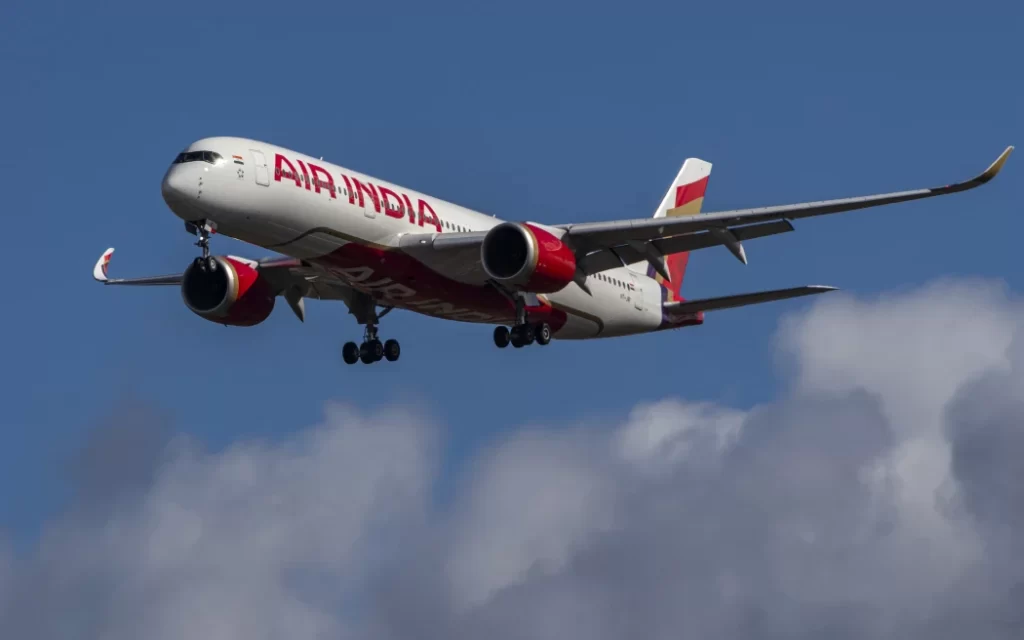Surge in Hoax Bomb Threats Causes Chaos for Indian Airlines
3 min read

Since Monday, at least 19 flights in India have been affected by hoax bomb threats, resulting in significant delays and diversions. The situation escalated on Wednesday when an Air Akasa flight bound for Bengaluru was rerouted to New Delhi due to a bomb scare.
The day prior, Singapore’s Air Force dispatched two fighter jets to escort an Air India Express plane following similar threats. Earlier, an Air India flight traveling from Delhi to Chicago made an emergency landing in Canada as a precaution. Other airlines, including IndiGo and SpiceJet, have also been caught up in this wave of threats.
While hoax bomb threats are not uncommon in India, the sudden spike since Monday remains unexplained. India’s civil aviation minister, Ram Mohan Naidu Kinjarapu, stated that the ministry is closely monitoring the situation and taking “every possible effort” to ensure safe flight operations. “We are committed to maintaining the highest security standards, and passenger safety remains our priority,” he emphasized in a statement on X (formerly Twitter).
A senior official from the home ministry indicated that additional security personnel would be deployed on “sensitive routes,” although no formal announcement has been made. Efforts to reach officials from the Directorate General of Civil Aviation and the Bureau of Civil Aviation Security for comments have gone unanswered.
The troubles began on Monday when three international flights departing from Mumbai were either delayed or diverted due to threats posted on an X account. Police have detained a teenager in connection with these posts. On Tuesday, seven additional flights were impacted, including two from Air India, due to threats issued from another suspended X account. Screenshots of these posts reveal that the user tagged the airline and local police, including specific flight numbers in their messages.
Air India has announced that it is collaborating with authorities to identify those responsible for the threats and is considering legal action to recover costs incurred due to the disruptions.
Each Indian airport has a Bomb Threat Assessment Committee responsible for evaluating threats and coordinating responses. Such threats can trigger a comprehensive security operation involving bomb disposal squads, sniffer dogs, ambulances, police, and medical personnel. Passengers, along with their baggage and cargo, are typically offloaded and screened again, while security teams conduct thorough searches of the aircraft before it can be cleared for takeoff.
The resulting delays can cost airlines and security agencies thousands of dollars. For flights heading to international destinations, the implications can extend beyond India, often requiring coordination with foreign agencies, as seen in recent incidents involving Singapore and Canada.
On Tuesday, Singapore’s defense minister reported that two fighter jets had scrambled to escort an Air India Express flight from Madurai to Singapore, ensuring it flew away from populated areas before landing safely at Changi Airport. “Once on the ground, the plane was handed to the Airport Police. Investigations are ongoing,” stated Minister Ng Eng Hen.
In Canada, the Royal Canadian Mounted Police is investigating the threat that forced an Air India flight to divert to Iqaluit Airport. Air India announced on Wednesday that a Canadian Air Force plane would transport passengers to Chicago, although it’s still unclear when the original Air India flight will be permitted to depart.
The series of hoax threats has not only caused operational headaches for airlines but has also raised concerns about passenger safety and the broader implications for air travel security in India. As investigations continue, the hope remains that the authorities will quickly address the situation to restore confidence among travelers and ensure smoother operations in the future.